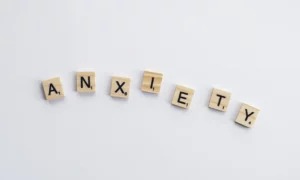 In today’s world, it’s not uncommon to experience feelings of anxiety. This pervasive emotion can stem from various sources and affect us both mentally and physically.
In today’s world, it’s not uncommon to experience feelings of anxiety. This pervasive emotion can stem from various sources and affect us both mentally and physically.
Understanding the underlying causes of anxiety and learning effective coping strategies can empower us to regain control over our emotional well-being.
The Roots of Anxiety
This is a natural response to stress, danger, or uncertainty. It often arises from a combination of factors, including genetics, brain chemistry, personality traits, and life experiences. Traumatic events, major life changes, or ongoing stressors can trigger and exacerbate anxiety.
The Role of Overthinking
Overthinking magnifies anxiety by keeping us fixated on negative scenarios or potential outcomes. Our minds spiral into a loop of “what-ifs” that can cause unnecessary worry.
To counteract this, practicing mindfulness and grounding techniques can help bring our focus back to the present moment.
Social Pressures and Comparison
In the age of social media, constant exposure to curated lives can lead to feelings of inadequacy and social anxiety. Remember that social media often showcases a skewed reality. Limiting screen time and cultivating self-compassion can alleviate these pressures.
Uncertainty and the Fear of the Unknown
The fear of uncertainty can breed anxiety as we try to anticipate every possible outcome. Embracing uncertainty as a natural part of life and developing flexible thinking can reduce anxiety’s grip on our minds.
Coping Strategies
Breathing Exercises and Relaxation Techniques
Deep breathing exercises, such as diaphragmatic breathing, can activate the body’s relaxation response. Regular practice can help calm the mind and reduce these symptoms.
Physical Activity and Stress Reduction
Engaging in regular physical activity releases endorphins, which are natural mood lifters. Exercise also helps reduce the physical symptoms of anxiety, such as tension and restlessness.
Seeking Support
Opening up to friends, family, or a mental health professional can provide an outlet for expressing feelings and gaining valuable perspectives. Sometimes, sharing our concerns lightens the burden of anxiety.
Mindfulness and Meditation
Mindfulness involves staying present and nonjudgmentally observing our thoughts and emotions. Meditation and mindfulness practices promote emotional regulation and offer a respite from anxious thinking.
Anxiety may be a universal human experience, but it doesn’t have to control our lives. By recognizing its sources and arming ourselves with effective coping strategies, we can take charge of our mental and emotional well-being.
Remember that seeking professional help is a sign of strength, and it’s crucial to reach out if anxiety becomes overwhelming.
Picture Credit: Pexels
